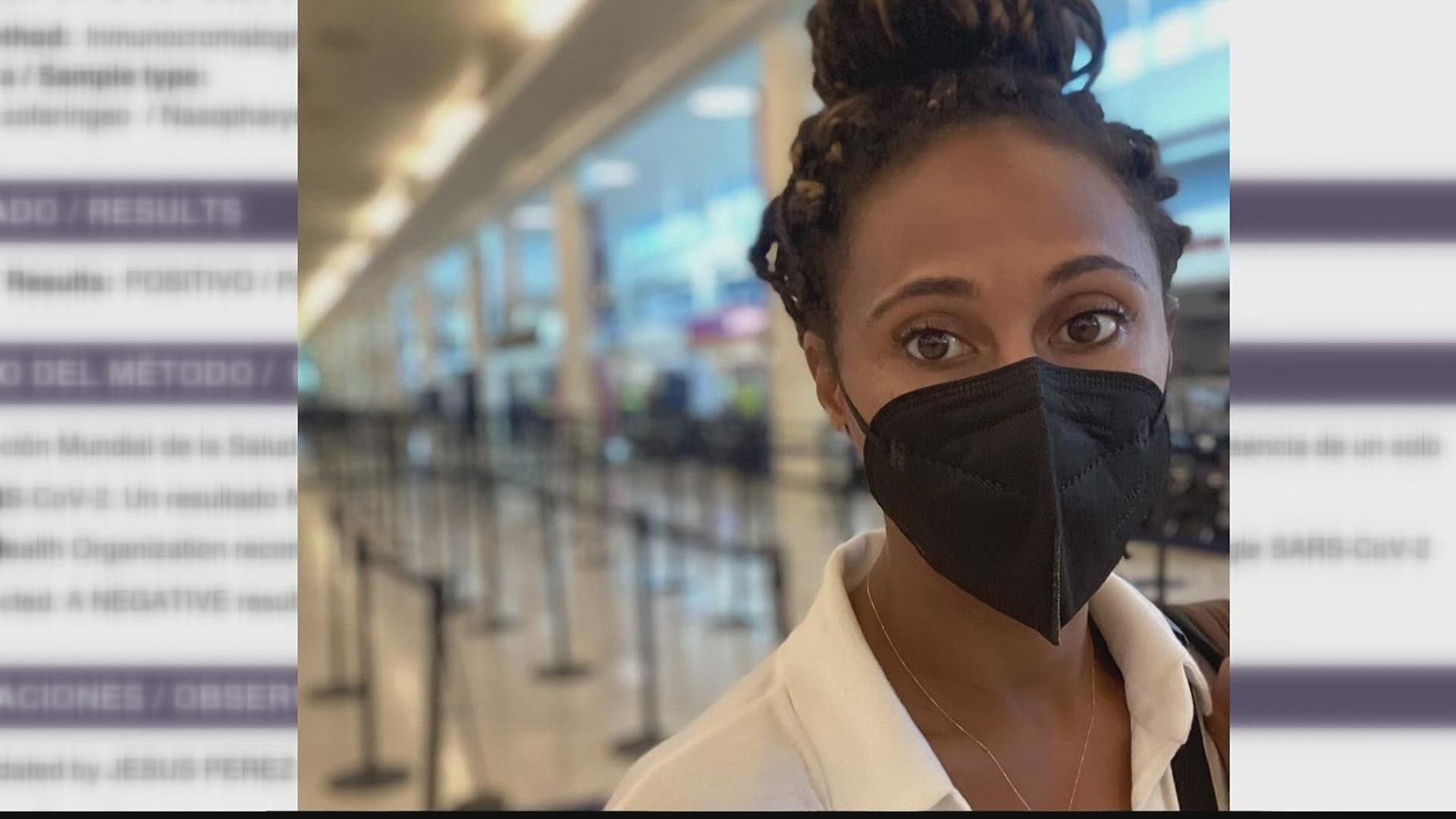ATLANTA — A sun-soaked, relaxing vacation with the family in Mexico ended in a tidal wave of disappointment for one Atlanta woman. Jeanette McWilliams tested positive for COVID-19 at the airport in Cancun just two hours before her flight, turning her time away from home into an unexpectedly costly venture.
"I was told, 'ma’am you actually tested positive,' and I was shocked," McWilliams, of metro Atlanta, told 11Alive's Shiba Russell.
"We were all kind of like, 'well what do we do,' and I was like, 'can you please test me again?' they tested me again. We waited another 25 minutes and again the test was positive," she said.
The rapid test results just didn’t add up.
"I had COVID a year ago," McWilliams said. "I’ve gotten fully vaccinated. I’ve gotten the booster. I felt no symptoms. I was extremely safe in Mexico for my trip."
But she had no choice but to stay in the country. Her husband and two young children boarded the flight back to Atlanta without her, just days before the new year.
"Sure absolutely I was scared." She said when asked about the experience. "There was really no resources for me within the airport."
With help from a couple of friends in the U.S. and an airline worker, she was able to find a hotel and transportation, then got to work researching false positives on the internet. McWilliams suspected her lupus might be to blame.
"I found an article from the FDA that said that there are false positives linked to autoimmune diseases, and it’s called the rheumatoid factor," she said.
11Alive tracked down that FDA letter to health care providers from 2020. It warns that interference from human antibodies, like rheumatoid factor, increases the risk for a false positive with antigen tests. Piedmont’s COVID task force chief, doctor Jayne Morgan, says it can happen with a PCR test too.
"When you have these positive factors, your risk of having a false positive COVID test are higher--higher for rheumatoid factor positive people than people with ANA, that's anti-nuclear antibody," Morgan said.
The doctor added that there's more to consider as well for those who may be living with an autoimmune disease.
"And additionally, it also depends on the concentration of autoantibodies in your system. Medium to high concentration levels of autoantibodies also have a higher risk of cross-reactivity," she said.
Five tests later, two extra days spent in Mexico, McWilliams finally tested negative and was able to book another flight with a different airline and head back home. The whole ordeal cost her about $2,000.
When asked how she knew the COVID-19 rapid test would come back differently than the test she initially took at the airport, McWilliams' answer was to the point.
"I didn’t," she said. "I just wouldn’t stop testing until I found the result that I knew was true."
McWilliams said she is now turned off from flying internationally while airports continue to utilize testing restrictions. But, Morgan said the chances of suffering a false positive COVID-19 test under these circumstances are rare.
For those who may be concerned, Morgan advised patients to visit their rheumatologist and submit to a urea dissociation test. The test will tell patients if they are rheumatoid factor positive or anti-nuclear antibody positive -- those factors who are positive for those two factors are more likely to falsely test positive on a COVID-19 test.
McWilliams said she was able to confirm with her doctor’s office that she is in fact rheumatoid factor positive.

